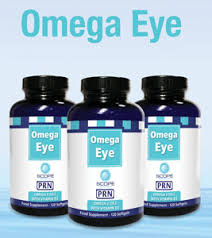How To Take Care Of Your Eyes This Winter

Keep your eyes healthy in cold weather
The temperatures are dropping and cold winds are starting to blow. You are dressing in coats, hats and scarves to protect your body from the cold. However, you may be neglecting one important part of your body this winter – your eyes.
Cold air can drain the moisture from everything – including your skin and eyes. Then, when you escape the cold and head indoors, the heat from the fire or central heating can dry your eyes out even more. Some of the unpleasant symptoms of winter dry eyes are:
- Stinging and Burning
- A feeling that there is something in your eyes
- Mucous in and around the eyes
- Redness
- Watery eyes
- Blurring of vision
Dry, irritated eyes can be very common in the winter months but there are a number of measures you can do to take care of your eyes this winter.

1. Make an appointment with your ophthalmologist
At the Cork Eye Clinic we run a dedicated Dry Eye Clinic. Using the most up to date examination techniques we can determine the type and severity of your dry eyes and also advise you on the best possible treatment options and environmental factors that can be modified to reduce and relieve your dry eye symptoms.
2. Stay away from direct heat
Warming up by the fire when coming in from the cold may be a relief, but don’t spend too much time in front of it. Heat causes the tear film on your eyes to evaporate, leaving the surface of your eye vulnerable to drying out.
3. Wear protective eyewear outside
Wraparound sunglasses are perfect protection against windy wintery days. They also offer added protection against the harsh UV rays of the winter sun.
4. Use regular eye drops
Artificial tears should play a role in your winter eye care routine. Mr Golchin will recommend the best eye drops for your eyes during your consultation. Keeping a bottle with you throughout the day can greatly aid in sudden episodes of irritation.
5. Consume Omega-3 Oils
Omega 3 can improve the function of the eyes Meibomian glands, which produce the oily layer of the tears and prevent tears from evaporating from the front surface of the eye. A study of more than 32,000 women found that a higher dietary intake of omega 3 fatty acids was associated with a decreased incidence of dry eye syndrome. We recommend Omega Eye supplements which provides a very high level of Omega 3 in the correct therapeutic dose.
which produce the oily layer of the tears and prevent tears from evaporating from the front surface of the eye. A study of more than 32,000 women found that a higher dietary intake of omega 3 fatty acids was associated with a decreased incidence of dry eye syndrome. We recommend Omega Eye supplements which provides a very high level of Omega 3 in the correct therapeutic dose.
If your best efforts do not improve your ocular symptoms this winter, you would benefit from a full assessment with our Dry Eye Clinic. Do not hesitate to contact the practice on 021-4341030 or bgolchin@bonsecours.ie





 which produce the oily layer of the tears and prevent tears from evaporating from the front surface of the eye. A study of more than 32,000 women found that a higher dietary intake of omega 3 fatty acids was associated with a decreased incidence of dry eye syndrome. We recommend Omega Eye supplements which provides a very high level of Omega 3 in the correct therapeutic dose.
which produce the oily layer of the tears and prevent tears from evaporating from the front surface of the eye. A study of more than 32,000 women found that a higher dietary intake of omega 3 fatty acids was associated with a decreased incidence of dry eye syndrome. We recommend Omega Eye supplements which provides a very high level of Omega 3 in the correct therapeutic dose.